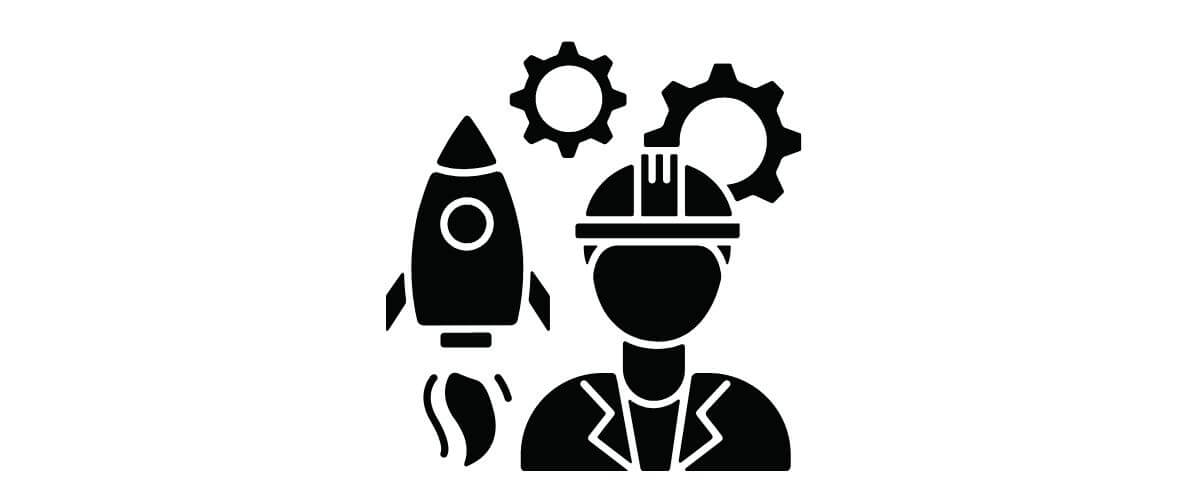
Aviation engineering, a sect of engineering that handles airspace development, aircraft navigation systems, modern airport designs, and aerodrome planning, is crucial to the design plan and innovation process. More specifically, aviation engineers often control the design process for military aircraft.
If you’re interested in the engineering field, specifically airplane design, testing, and various software applications, consider pursuing a role in aviation engineering. This innovative space offers ample opportunities to become hands-on with aircraft, as well as the aircraft’s internal computer hardware and software applications.
Additionally, those in aviation engineering aid in reducing air emissions, diminishing aircraft noise, and cutting costs for extensive production and operation.
To learn more about aviation engineering, keep reading this in-depth guide.
How to Become an Aviation Engineer
Depending on your level of experience and specialization, your role as an aviation engineer may vary in qualifications. A successful aviation engineer will understand how to create innovative, effective design plans for airplanes.
Let’s discuss the steps you should take to become one, such as job duties, educational requirements, expected salary, and more.
Job Duties of an Aviation Engineer
So, what exactly do aviation engineers do in the workplace? Within the engineering field, aviation engineers hold plenty of responsibilities.
The following are some typical job duties of an aviation engineer:
- Work on the design, testing, and development of aircraft
- Maintain quality of various aircraft
- Manage internal control systems within aviation design
- Understand and implement safety and comfort procedures for potential passengers
- Collaborate with electrical specialists and industrial manufacturing designers
- Simulate flying situations
- Meet specific timelines for each project
- Troubleshoot issues related to aircraft systems and equipment
Special Skills
Special skills are often innate but can be beneficial for many aviation engineers.
Here are some of the special skills that many successful aviation engineers should have:
- Strong interpersonal and communication skills
- Highly collaborative
- Strong analytical and technical skills
- Math and physics skills
- Creativity
- Persistence
- Patience
- Excellent problem-solving skills
The Educational Path to Becoming an Aviation Engineer
Most entry-level aviation engineers will attend a four-year bachelor’s degree program at an accredited college or institution. You must obtain a relevant bachelor’s degree to be considered for many job opportunities in aviation engineering.
Recommended bachelor’s degree programs for aspiring aviation engineers include:
- Mechanical engineering
- Electrical engineering
- Math
- Physics
As you pursue mid-and senior-level roles in aviation engineering, you may also consider obtaining a master’s degree in aerospace engineering. Depending on your specialization, you may be able to pursue a wide range of professional aviation engineering opportunities.
Industries for Aviation Engineering
In this sector, you can expect to work in different industries, such as government aviation or private engineering firms.
Since professional aviation engineers play a prominent role in the development of airport design, operations, and maintenance, they must first understand the ins and outs of the aviation industry and technologies.
Government Aviation
Perhaps the most prominent sect of aviation engineering is government aviation. Government aviation hires plenty of experienced aviation engineers, particularly within the military and civil fields.
To work directly on aviation engineering projects, we recommend attempting to secure an aviation engineering role with the Federal Aviation Administration (FAA), Civil Aeronautics Board, or the Department of Transportation.
Fortunately, many of these government agencies allow aviation engineering students to participate in guided tours of the aviation operations wing. However, you may expect security clearance before getting to tour the operations.
Private Engineering Firms
As you explore the professional realm of aviation engineering, another avenue to pursue for professional opportunities is private engineering and aviation software firms.
Again, many private engineering firms will allow aviation engineering students to tour the workplace and witness the type of work in which they may become involved.
Average Salary of an Aviation Engineer
The average salary of an aviation engineer is $96,940. However, this salary estimate is entirely dependent upon an individual’s level of experience, education, specialization, and location.
Need Lab Furniture for Your Aviation Engineering Facility?
Aviation engineering facilities need quality workstations to achieve their everyday tasks with ease. If you’re searching for the ideal work setup, look no further than collaborating with the team at OnePointe Solutions!
By working with OnePointe Solutions, the leading provider of state-of-the-art ESD grade workbenches, IT and computer workstations, and other specialized lab furniture, we will help you accomplish your work tasks by supplying you with the necessary tools you need to succeed in your lab space. By having premium-grade lab furniture at your desk, we hope you’ll power through the workday with ease!
We can even provide you with lab-grade countertops and casework as well.
Here at OnePointe Solutions, we want to help you design the perfect workstation and lab space to set you up for success each day! Ready to get started in designing your dream workstation?
Contact the OnePointe Solutions team today at (866) 219-1847.


